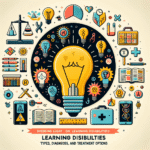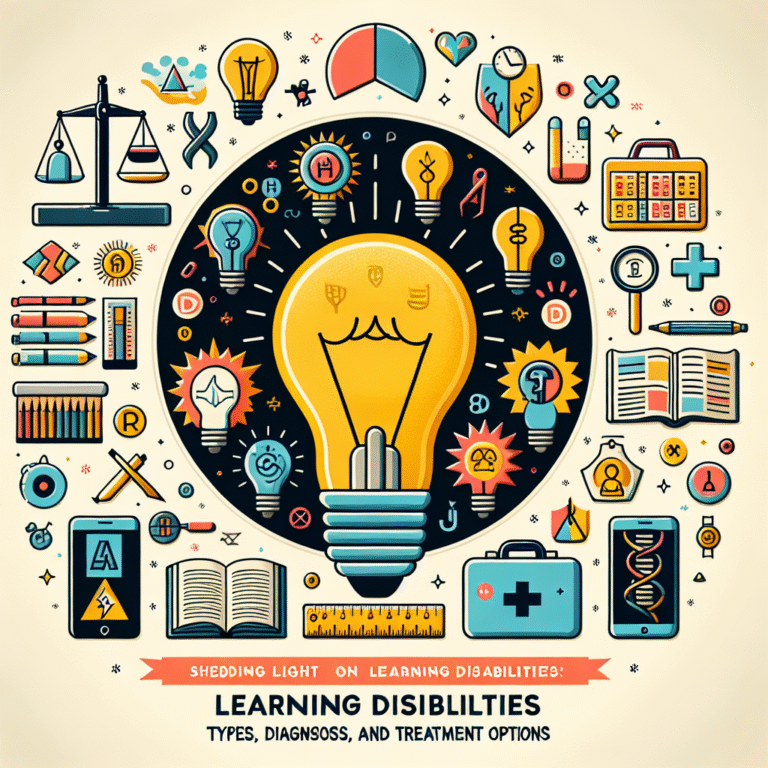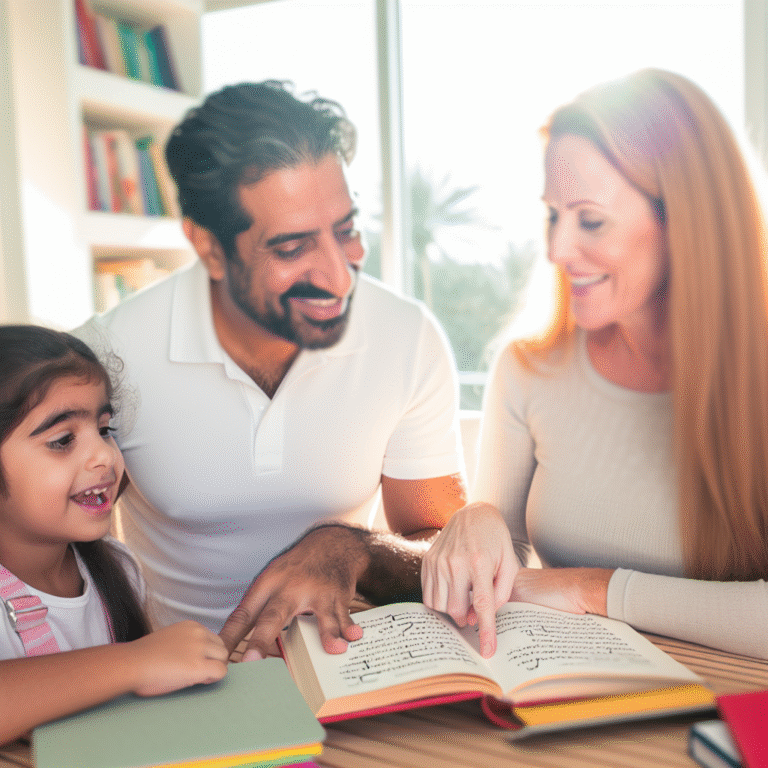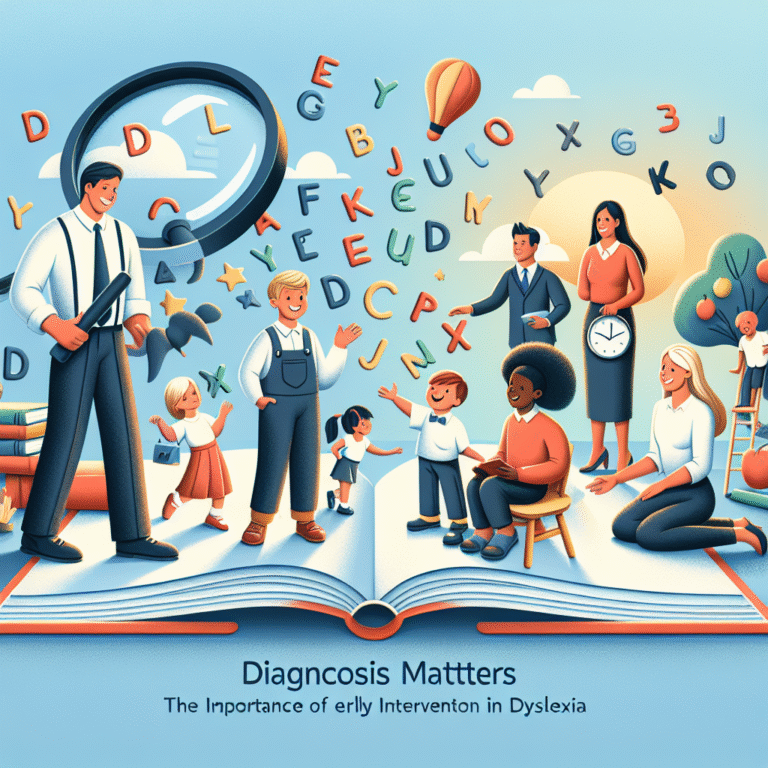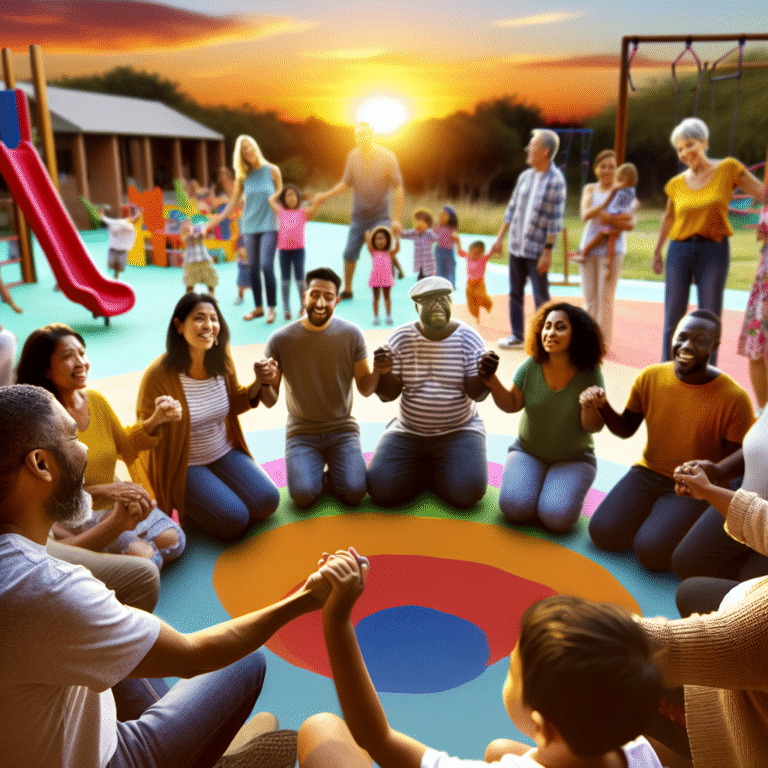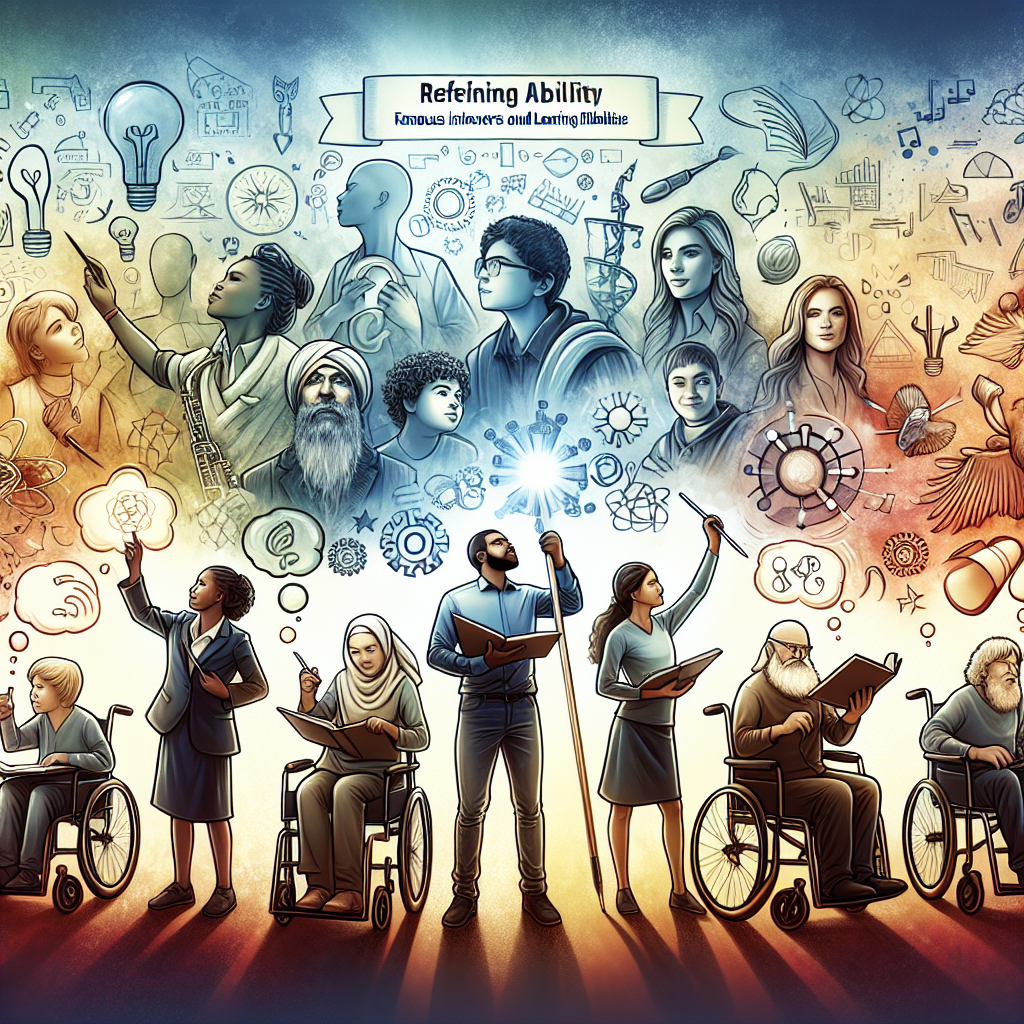
Redefining Ability: Famous Innovators and Artists Who Thrive with Learning Disabilities
Introduction
In a world that often measures success through conventional metrics, the real stories of perseverance and creativity can sometimes remain obscured. The narrative surrounding learning disabilities tends to paint a bleak picture, framing these differences as barriers rather than unique paths to innovation. This article, Redefining Ability: Famous Innovators and Artists Who Thrive with Learning Disabilities, aims to enlighten and inspire by showcasing renowned figures who have transformed their challenges into extraordinary achievements.
Understanding that a learning disability is not a hindrance but rather a different way of processing information can shift perceptions and inspire individuals of all ages. Let’s dive into their stories, insights, and the lessons they offer!
Redefining Ability: A New Framework for Learning Disabilities
Learning disabilities are often perceived negatively, but reframing them in a positive light can lead to powerful outcomes. The concept of "redefining ability" emphasizes that those with learning disabilities often possess unique talents and strengths that can lead to innovative solutions and artistic breakthroughs.
Understanding Learning Disabilities
Before we explore the stories of these famous innovators and artists, it’s essential to understand what learning disabilities encompass. They can manifest in various forms, including dyslexia, ADHD, and dyscalculia, impacting the way individuals read, write, compute, or focus.
Table: Common Learning Disabilities and Their Characteristics
| Disability | Characteristics |
|---|---|
| Dyslexia | Difficulty with reading, spelling, and writing. |
| ADHD | Challenges with sustaining attention, impulse control, and hyperactivity. |
| Dyscalculia | Trouble with understanding numbers and mathematical concepts. |
| Dyspraxia | Difficulty with coordination and fine motor skills. |
Case Studies of Famous Innovators and Artists
1. Albert Einstein: Theoretical Physicist
Albert Einstein, one of the greatest minds in science, struggled with dyslexia and was not an exceptional student in his early years. Yet, he did not let these challenges define him. Rather, Einstein’s unique ways of thinking and representation of complex abstractions led him to develop the theories of relativity, radically changing our understanding of time and space.
Analysis
Einstein’s journey underscores the importance of differing cognitive styles. By embracing his learning disability, he was able to harness his unique perspective. This serves as a reminder that the traditional educational system often overlooks unconventional thinkers.
2. Agatha Christie: Master of Mystery
Agatha Christie, the world-renowned mystery novelist, had a learning disability known as dysgraphia. Despite her struggles with writing coherently, Christie created some of the most gripping narratives. Her ability to weave intricate plots shows that creativity and storytelling can thrive regardless of the medium of expression.
Analysis
Christie’s success illustrates how learning disabilities can lead to distinct and innovative narrative styles. By redefining her perceived limitations, she became a pioneer in literary arts.
3. Thomas Edison: Inventor and Businessman
Thomas Edison, an iconic figure in innovation, faced significant challenges due to his dyslexia and hearing impairment. These obstacles did not deter him; instead, Edison’s journey from a struggling student to a prolific inventor—with over a thousand patents—demonstrates how tenacity and creativity can flourish when we embrace our differences.
Analysis
Edison’s achievements emphasize the value of resilience. His inventions, like the phonograph and incandescent light bulb, revolutionized industries and lifestyles, proving that learning disabilities can lead to groundbreaking progress.
4. Whoopi Goldberg: Actress and Comedian
Whoopi Goldberg has spoken candidly about her struggles with dyslexia. Despite her learning challenges, she has become one of the most celebrated performers in Hollywood. Goldberg’s journey from a tough upbringing to winning an Oscar shows that passion, combined with unique talent, can lead to unparalleled success.
Analysis
Goldberg’s story highlights the importance of finding one’s voice and platform. The vibrant personality she brings to her performances is a testament to how embracing one’s learning disability can lead to profound and impactful artistry.
5. Steven Spielberg: Filmmaker
Steven Spielberg, the acclaimed director of numerous blockbuster films, experienced challenges with dyslexia during his childhood. Rather than viewing his learning disability as a limitation, Spielberg turned it into an asset, crafting compelling stories that resonate with audiences worldwide. His ability to visualize narratives transformed the landscape of cinema.
Analysis
Spielberg’s accomplishments invite us to consider how creative expression often transcends traditional barriers. His journey demonstrates that embracing one’s learning disability can fuel artistic innovation.
6. Richard Branson: Entrepreneur
As the founder of the Virgin Group, Richard Branson has openly discussed his struggles with dyslexia. Rather than allowing his learning disability to hold him back, Branson has utilized it to drive creativity and risk-taking in business. His entrepreneurial spirit challenges the notion that learning disabilities equate to limitations.
Analysis
Branson’s story encourages others to embrace their unique traits as catalysts for innovation. His business successes illustrate that learning disabilities can lead to remarkable contributions to society.
Lessons Learned from These Innovators and Artists
Embrace Your Uniqueness
Each of the individuals highlighted here harnessed their learning disabilities to fuel their creativity and innovations. Embracing one’s differences can turn what some view as an obstacle into a powerful tool for success.
Seek Support and Understanding
Building environments that foster understanding and support is crucial. Families, educators, and friends play an essential role in helping individuals thrive.
Cultivate Resilience
The journey through learning disabilities often requires immense resilience and hard work. Each of these innovators persisted despite their challenges, and their stories are a testament to the power of determination.
Find Alternative Paths to Learning
Traditional educational methods may not suit everyone. Innovative strategies, such as experiential learning, can redefine how one acquires knowledge and skills.
- Share Your Story
By sharing personal experiences and successes, individuals can inspire others facing similar challenges. Transparency fosters community and encourages others to believe in their potential.
Conclusion
Redefining Ability: Famous Innovators and Artists Who Thrive with Learning Disabilities offers not just stories of triumph but also deeper insights into the potential of those who think differently. Each case study reminds us that traditional definitions of ability can be broadened.
By embracing our differences and cultivating environments that support diverse learning styles, society can unlock a treasure trove of ideas and innovations. This inspiring narrative ultimately encourages individuals to recognize that learning disabilities can serve as powerful catalysts for creativity and success.
FAQs
What constitutes a learning disability?
A learning disability is a neurological condition that affects the way individuals process information, leading to difficulties in reading, writing, math, or attention.
Can someone with a learning disability be successful?
Absolutely! Many famous innovators and artists, including those highlighted in this article, have thrived despite their learning disabilities.
How can parents support a child with a learning disability?
Parents can foster a supportive environment, seek out resources, advocate for their child’s needs, and encourage unique strengths.
What strategies can help someone with a learning disability?
Strategies such as personalized tutoring, technology tools, alternative learning methods, and mindfulness techniques can be beneficial.
Are there any positive aspects of having a learning disability?
Many individuals find that their learning disabilities encourage creativity, resilience, and unique problem-solving skills, allowing them to approach challenges from innovative angles.
- How can society better support individuals with learning disabilities?
Increased awareness, educational reforms, and workplace inclusivity initiatives can create an environment where everyone, regardless of their learning style, can thrive.
Final Thoughts
As we reflect on the stories of these groundbreaking individuals, let us remember that the journey of redefining ability is ongoing. It invites each of us to challenge conventional wisdom and embrace the diverse talents and perspectives that come from living and thriving with learning disabilities. By doing so, we pave the way for an inclusive future marked by creativity, innovation, and success for everyone.

